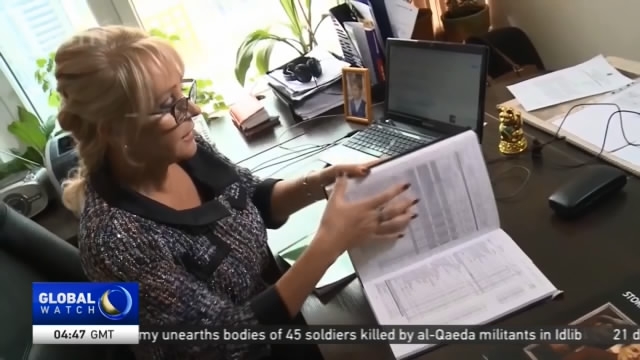
14:24, 31-Jan-2018
US-Russia Relations: Washington issues"Putin list" of Russian politicians, oligarchs

The United States has published a long-awaited list of more than 200 Russian politicians and billionaires, linked to President Vladimir Putin. American lawmakers backed the so-called "Putin List" last year after deciding that Russia had interfered in the 2016 presidential election. But the Russian president says the list is a "hostile step" which complicates their bilateral relations. Lucy Taylor reports from Moscow.
From the Chelsea owner Roman Abramovich to the prime minister himself, the so-called Putin List names more than 200 billionaires and political figures it says are linked to the Kremlin. US politicians ordered it after alleged Russian meddling in presidential elections. It was meant as a warning - but Moscow is laughing it off.
LUCY TAYLOR MOSCOW "Russian politicians say this reads like a copy and paste of the phone book, simply listing everyone in Russian public life. It may feel as if the Trump administration has stopped short of inflicting any real damage. But those on this list may still fear being caught up in what is a growing trade war."
Since 2014, Western economic sanctions have hurt Russian interests. This list doesn't accuse anyone of wrongdoing or stop them from doing business. But it opens up the possibility that more sanctions might be on the way.
RICHARD HAASS PRESIDENT, COUNCIL ON FOREIGN RELATIONS "They send a message, they impose a cost. Now, in and of themselves, are sanctions ever enough to get a government to stop doing something? No. But they become part of the cost and consideration that a government will take into account."
Even smaller companies have been caught up in the fallout. The owner of this Moscow meat importing firm says her business has had to adapt to survive.
ELENA SHAPOVALOVA GENERAL DIRECTOR, BALTAMERICA INTERNATIONAL "When sanctions and counter sanctions were introduced, our business lost 50% of pork supplies from Europe, and veal and pork supplies from the US. We had to boost our work with South American countries and Central America to make it through the past three, now nearly four difficult years."
The Kremlin has accused the US of trying to create instability through sanctions, and affect the outcome of its election in March. They have warned they could respond in kind. The oligarch blacklist may be out, but Russia is showing no signs of shame.

SITEMAP
Copyright © 2018 CGTN. Beijing ICP prepared NO.16065310-3
Copyright © 2018 CGTN. Beijing ICP prepared NO.16065310-3